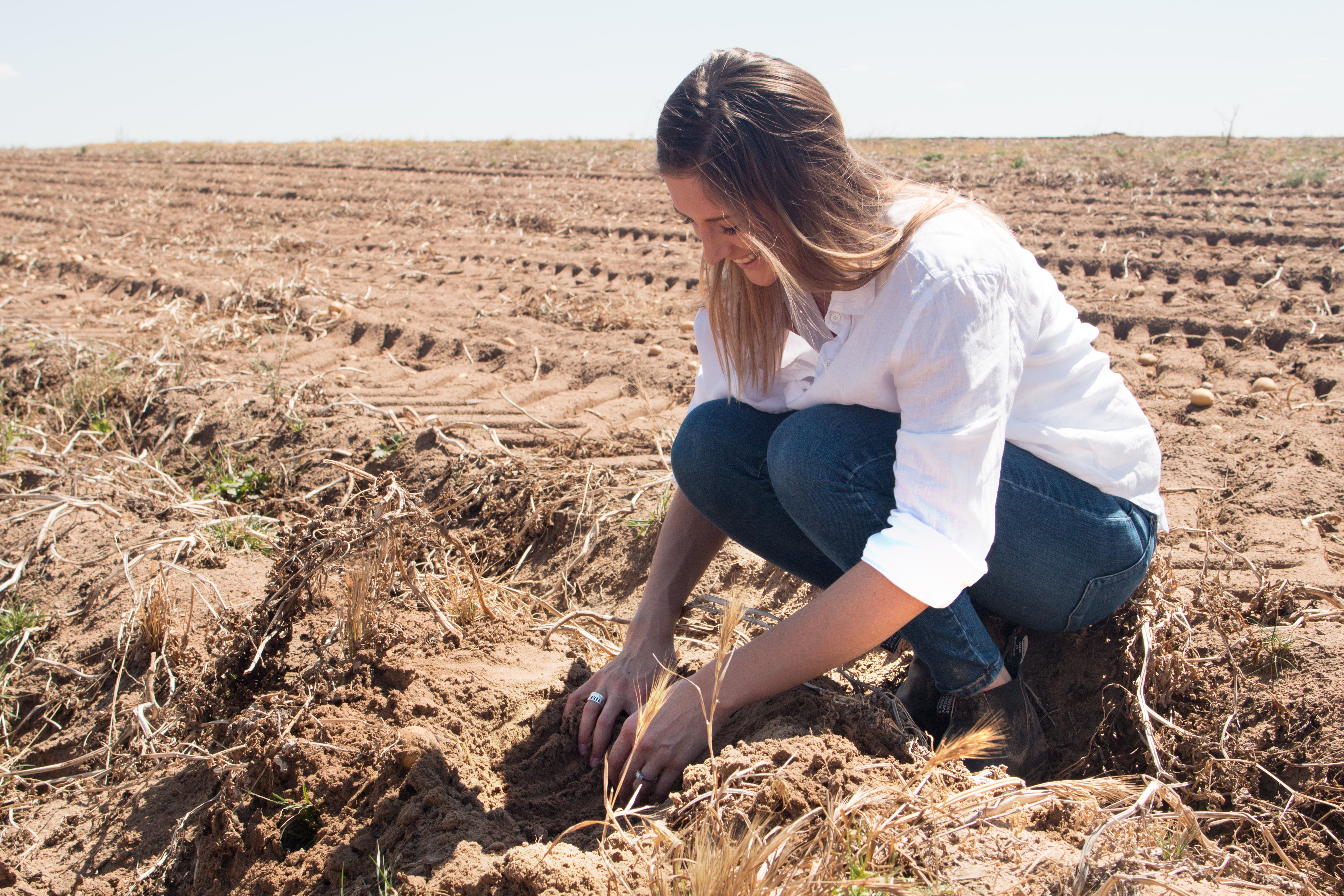Renee Pye: A fresh outlook on the potato market
Renee Pye is a 24-year-old grower from Zerella Fresh in South Australia. We profiled her in the April/May 2019 edition of Potatoes Australia magazine.
Fast facts
Name: Renee Pye
Location: Virginia and Parilla, SA
Works: Zerella Fresh
Grows: Potatoes, carrots and onions
How did you first become involved in the potato industry?
My family started growing potatoes in New Zealand in the mid-1950s, and then my father Mark Pye moved to Parilla in South Australia when an opportunity was presented in 1990. I was raised on the family farm sitting on the tractor with Dad, working on the back of the digger, driving chaser bins as well as touring around the Mallee with Mum (Fiona Pye) selling potato chips. These were the first pillars to becoming involved in the potato industry and the family farm before going to boarding school and then university. Every break, I would come back and work on the farm.
What does your role as Marketing and Media Manager at Zerella Fresh involve, and what are your responsibilities?
A major part of my role is developing an effective marketing plan/strategy for our hero product Spud Lite and acting on this plan. This involves analysing the current market; booking the appropriate mixed media; creating engaging content; managing all social media accounts; working on product development; and analysing past and current sales data. Another part of my role is product development for branching Zerella brands. This initially involves working with our agronomist and Dad, looking at our new varieties. We also look at what unique selling points these varieties have to help fulfil customer needs that have been identified through market research.
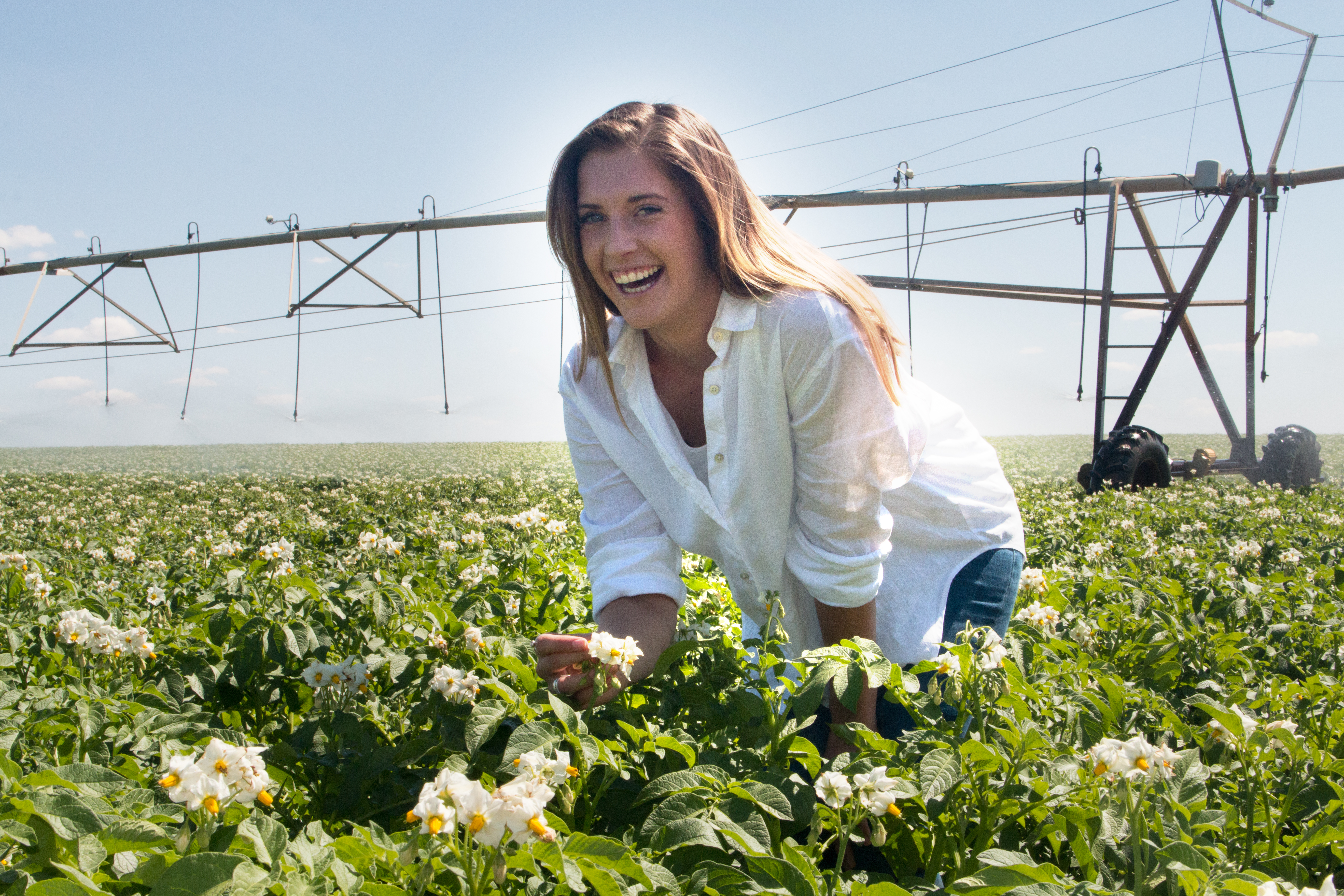
What do you enjoy most about working in the potato industry and how do you maintain your enthusiasm?
I really enjoy getting positive feedback from consumers about our products. The feedback is incredibly rewarding to hear when you see the full paddock to plate lifecycle of the product and the amount of passion in the process. I also enjoy overcoming the challenges that arise and looking back at how much the potato industry has evolved utilising innovative technology, development of new varieties and new controls on pests and diseases. As I get older, I have found that my enthusiasm and drive only grows.
What are the biggest challenges you face working in the industry, and how do you overcome them?
Our low carbohydrate potato Spud Lite has built an incredible consumer base that continues to grow. A challenge behind this is having a constant premium supply of this product for 365 days of the year. Often there are extreme weather events which can place stress on meeting the built-up demand. There are numerous ways we have tried to overcome this challenge which includes growing in different regions (potentially frost-free), and recognising water management and supply to ensure right aged seed and spread of production. Another major challenge is attracting the right people to live and work in the Mallee region. It is an ongoing trend that regional populations are on decline with less people wanting to live in a small, remote country town. We need people to help execute strategies, plans and processors to make the business successful.
How do you raise public awareness of Zerella Fresh potato varieties? What channels do you use?
At the moment, we have two products that we market with unique selling points as our own. One is Spud Lite and the second product is called Daisy Chippers, which are excellent for baking, frying and roasting. Both products have undergone sensory and nutritional information panel testing to validate these unique selling points. To raise awareness, we apply a mix of media channels to communicate effectively to our ideal target markets.
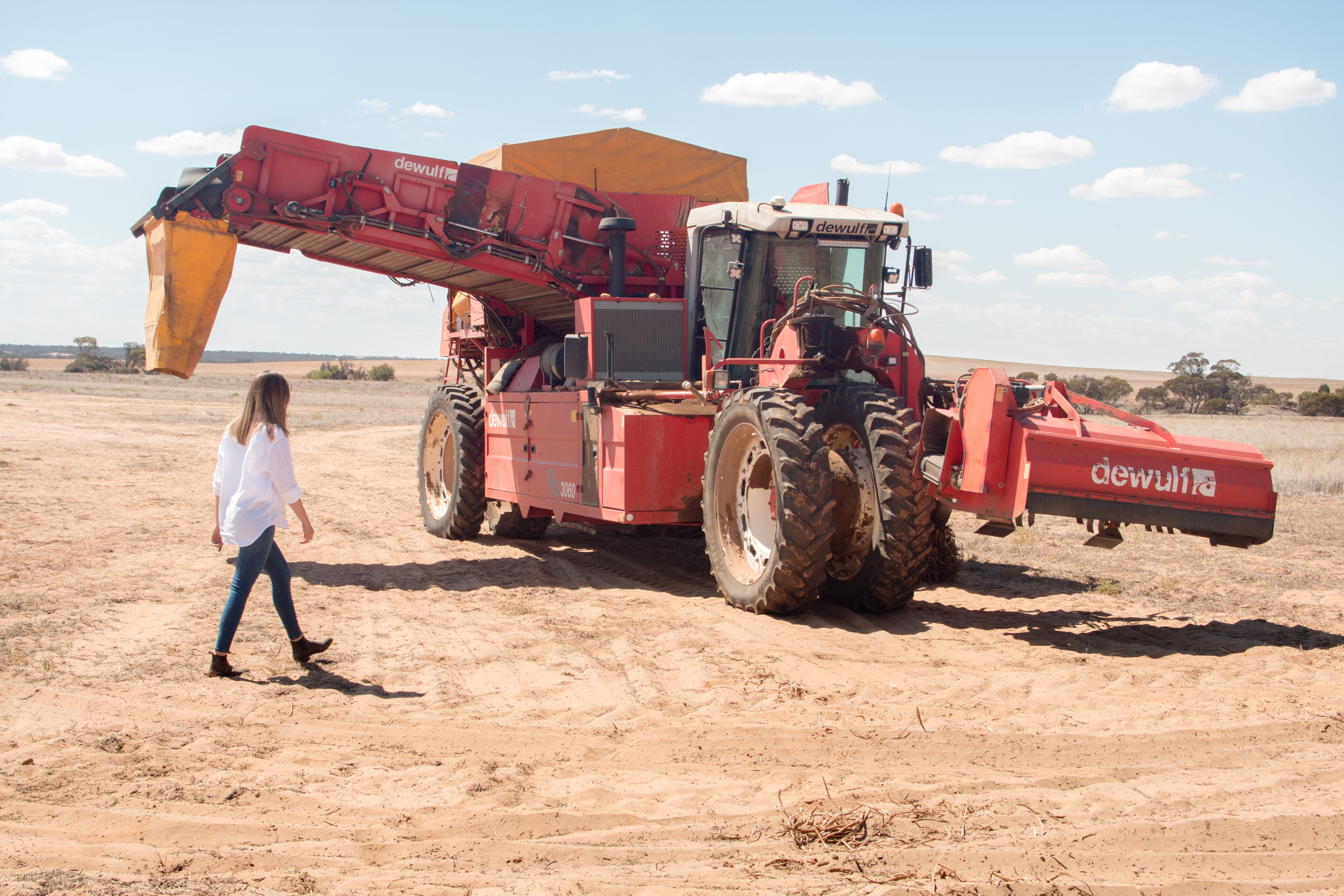
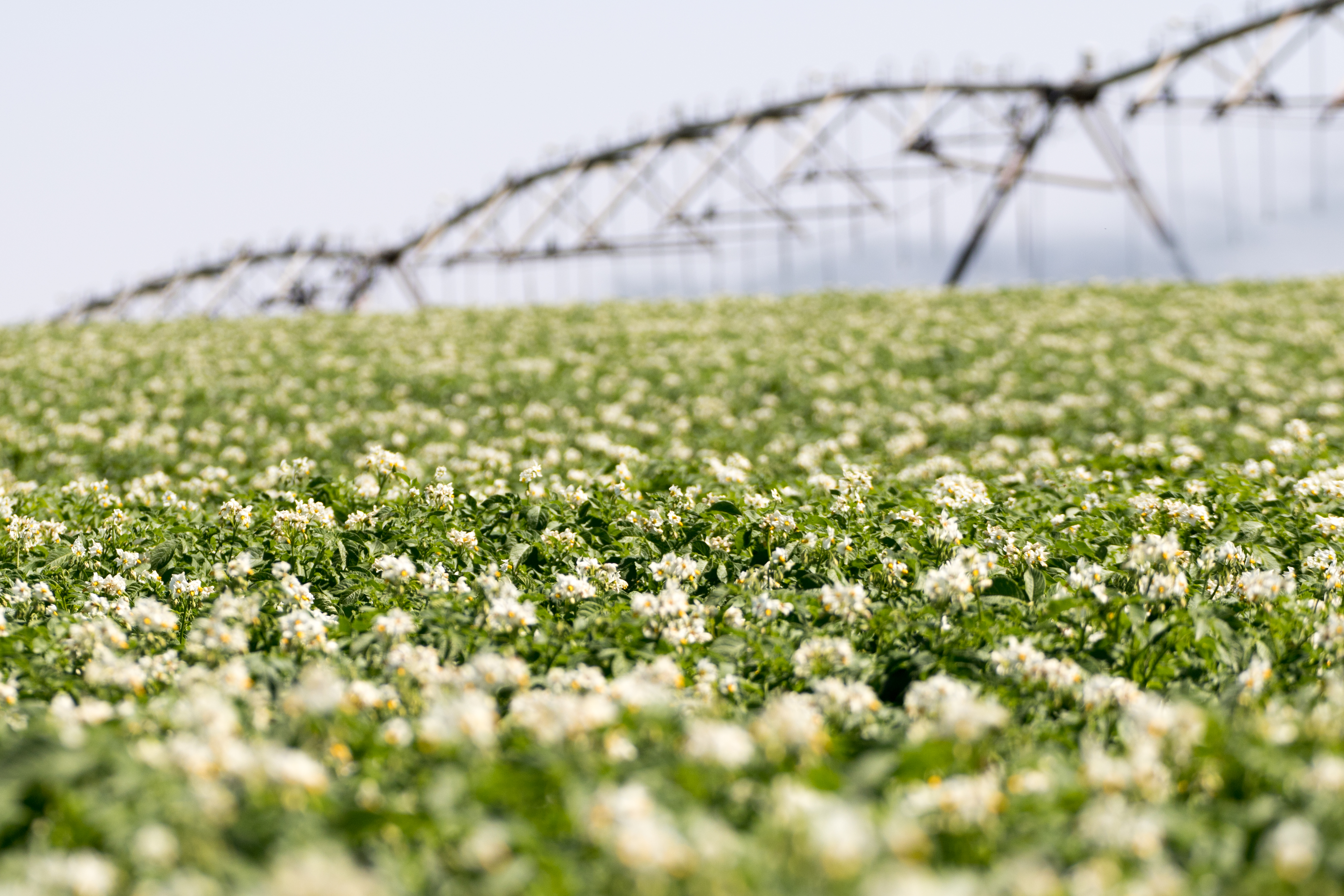
What new innovations, research and/or practices has your business implemented recently? What are you doing differently to other growing operations?
At Zerella Fresh, we are always looking for ways to make our business run more efficiently and sustainably through new technology and modern practices. One of our most successful innovations is Spud Lite. The varieties used for this product have a unique selling point: a shorter growing time of 100 days, which results in less water use and inputs and is a very versatile variety when used in the kitchen. In the supermarkets Spud Lite is sold in a 1.5kg bag and a 750gm baby bag – these pack sizes were established through research outcomes. We are now currently working on a 350gm microwave bag to meet the growing demand for convenience.
We have also introduced a green guard to the packaging to decrease the light exposure to the potatoes, resulting in a reduced amount of waste in-store. Touching on sustainability, we have been utilising variable rate irrigation to minimise our water use. Additionally we have installed around 4,000 solar panels across the farm and pack house. Regarding technology, we have implemented e-mapping, an electronic managing system called Information Leader and the use of drones with infrared and thermal cameras.
Where do you see opportunities for growth in the Australian potato industry?
I really do believe there is an opportunity for growth on a consumption level if the consumer is educated through a clever marketing campaign on how nutritious and delicious potatoes are, as well as debunking that tired unhealthy myth.
As demonstrated overseas and through Australian market research, there is a growing demand for convenient pack sizes, ready-to-go meals and value-added products. I think efforts towards these few things will assist with growth in the industry. Also, new varieties that offer a wealth of characteristics, including great eating experience, will provide opportunities.
Where do you see yourself in five years?
I hope that in five years we will be capturing more data on the farm and through the supermarkets. Furthermore, our business will still be striving for sustainability through new technologies that provide insight into efficient resources use, showing our past mistakes so we can continue to improve and remain competitive. Additionally, value-added products and educating Australians about the nutrition in potatoes envisions an exciting future. Personally, I hope to continue to grow my family and move to the farm, so my children can have an incredible upbringing like me whilst working in the family business.
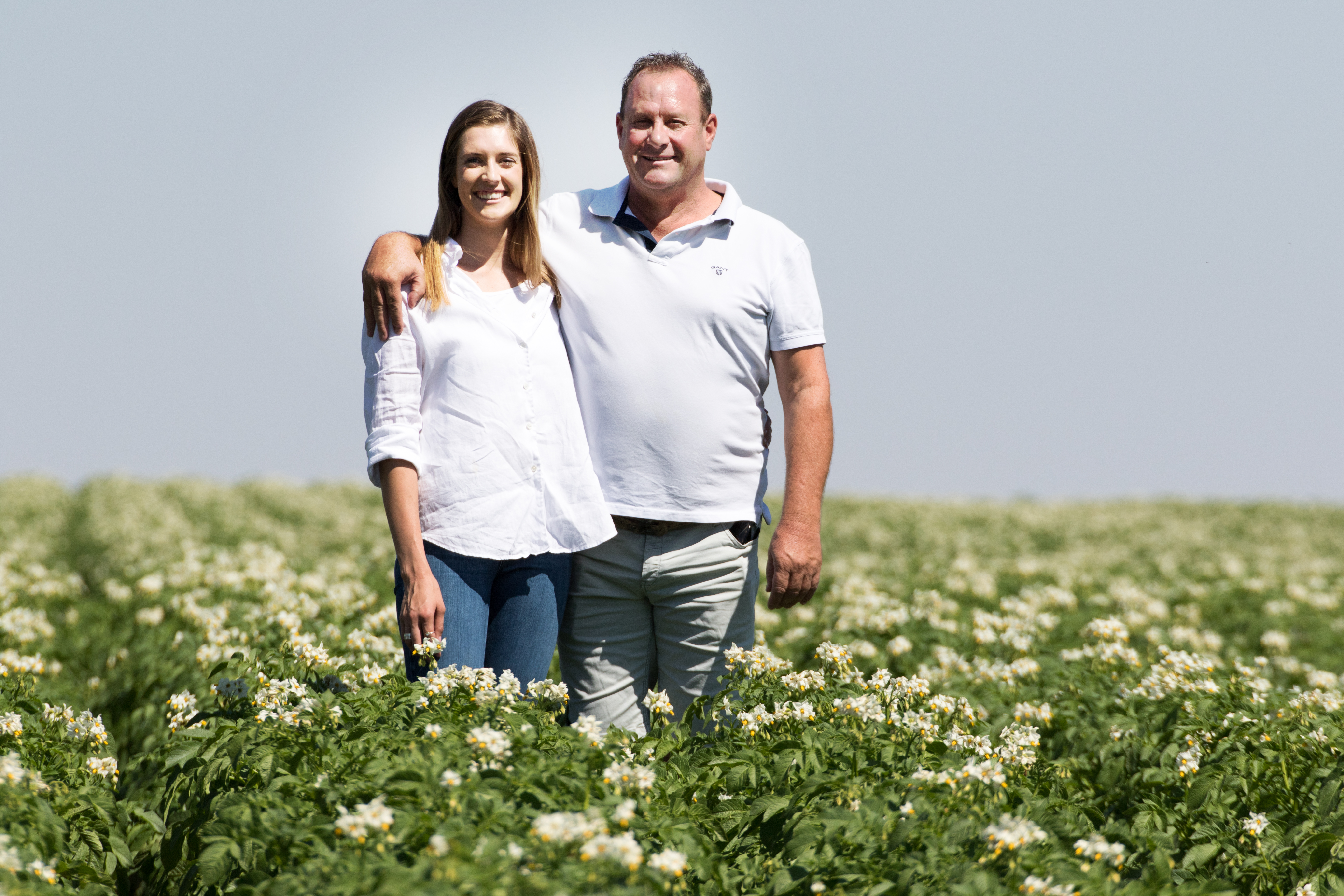
How do you think more young people could be encouraged to study and take up jobs in the potato industry?
I believe that the farming and potato industry is more than just managing and utilising the land. There are jobs for people who are interested in many different areas including marketing, human resources, accounting, IT, agronomy etc. It is an industry that brings a diverse range of opportunity. There also needs to be more education at primary and high school level – children’s passion and interest in farming could grow if they are educated from a young age about where their food comes from.
This grower profile first appeared in the leading magazine for the Australian potato industry, Potatoes Australia. If you’d like to subscribe to receive a new edition of Potatoes Australia in your mailbox every two months, use our online subscription form!

